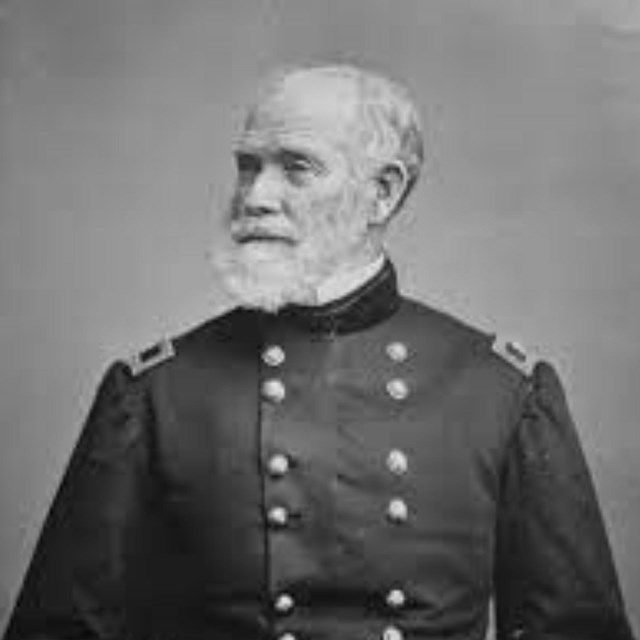
Delacombe Family, UK Mary Julia Tysen Allen's letters offer a glimpse of life for an officer’s wife on San Juan Island.
Mary Julia was never entirely comfortable on San Juan, where her husband enforced martial law on American citizens and maintained international relations with his counterparts at English Camp. He characterized the "English" as "very agreeable. There are four officers and two ladies; and as there is a doctor’s wife here, we have an agreeable society so far. We expect some tomorrow to stay a day or two."
Allen’s brief term at the American camp lacked the major incidents that characterized some of his predecessors' tenure. Allen’s rank of major caused some consternation with the British, because the joint military occupation convention stated that each garrison would have no more than a company (100) of soldiers/marines under the command of a captain. Delacombe contacted the provincial governor requesting a temporary promotion to major's rank. The governor agreed, but the admiral vetoed the request as he believed it would not be well received by other military officers. Allen was strict about his soldiers' military bearing. One order stated: "The wearing of civilian clothing or having it in their possession, by the enlisted men of this command is strictly prohibited." The soldiers also were forbidden from wearing waistcoats as well. Presumably this was to discourage desertion, which was not all uncommon at frontier posts where the men could go months without being paid and were enticed by gold strikes, free land and other attractions of civillian life. The letters reflect boredom, uncertainty, and some of the pettiness bred by an idle mind far from home. Readers should be aware that they also reveal racial and class bias common to the era.
|
Last updated: August 12, 2025



